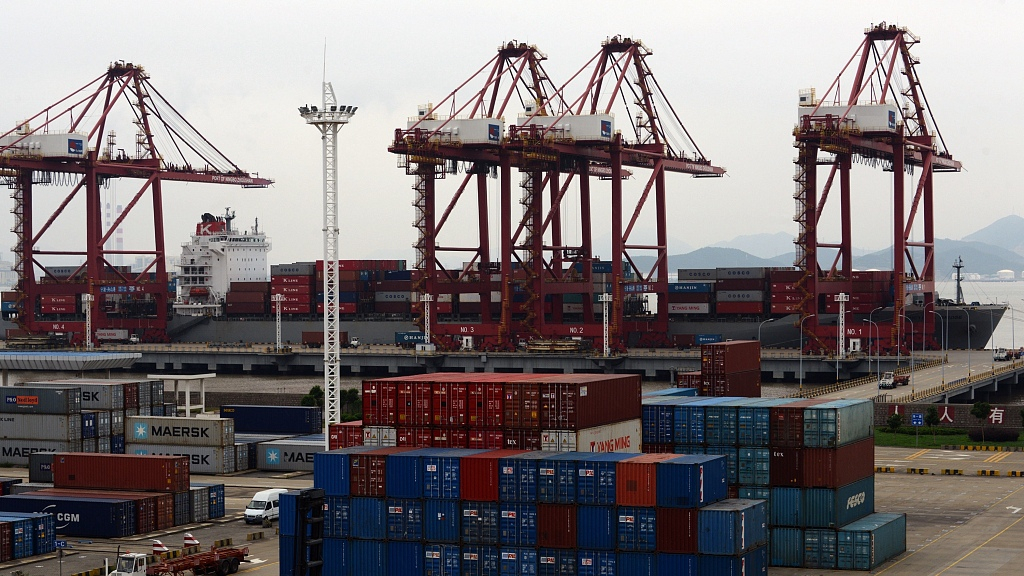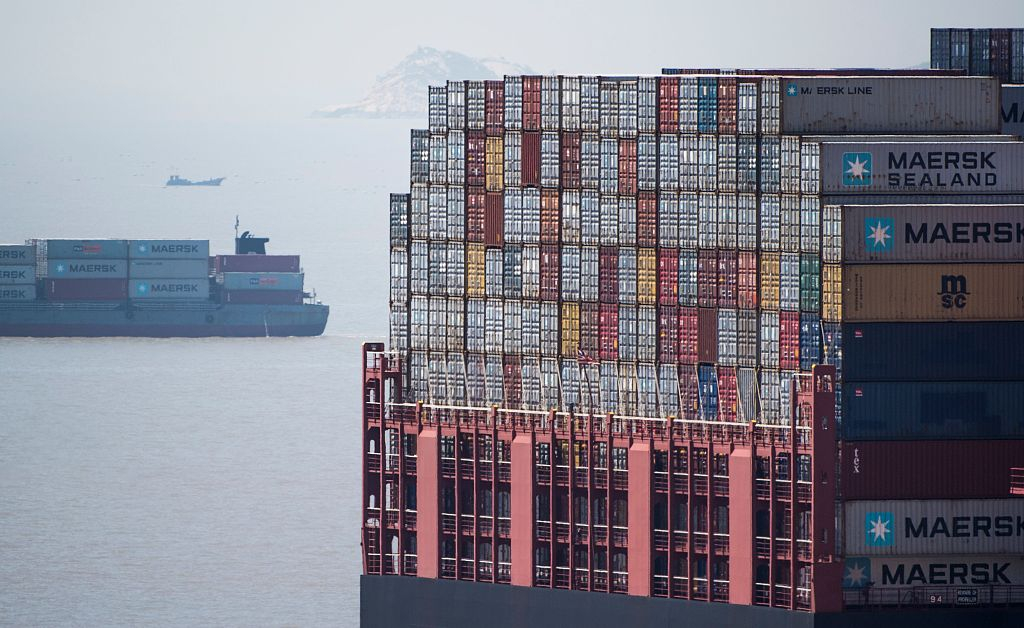

Editor's note: The article was first published by China Plus on August 25, 2019. It does not necessarily reflect the views of CGTN.
China has been forced to come up with countermeasures after the United States imposed 10 percent tariffs on another 300 billion U.S. dollars' worth of Chinese imports. Some U.S. politicians responded by ordering U.S. companies operating in China to leave, and find an alternative or move investments and manufacturing home.
Similar remarks have consistently been made since trade friction between China and the United States started over a year ago, this is actually an act of trade protectionism under the guise of administration measures. It not only violates the rights of U.S. companies to do business in China, it will also damage the global economic order.
There is a stable global network that consists of value chain, supply chain, and industrial chain. Multinational companies are trying to turn a maximum profit by allocating their resources throughout the world under the laws of the market economy.
They are not likely to follow blindly administrative measures, therefore remarks that go against the economic laws from certain people in the United States have been unwelcome.
The National Retail Federation(NRF) recently released a statement saying that finding alternative supply bases is a "costly and lengthy process", and that it is "unrealistic" for American retailers to move out of China, the world's second-largest economy.
"Our presence in China allows us to reach Chinese customers and develop overseas markets," said NRF Senior Vice President for Government Relations David French in the statement. "This, in turn, allows us to grow and expand opportunities for American workers, businesses and consumers," French said.
The U.S. Chamber of Commerce also noted in a statement that "U.S. companies have been ambassadors for positive changes to the Chinese economy that continue to benefit both our peoples." The statement also urged "the administration and the government of China to return to the negotiating table to complete an agreement."
The Wall Street Journal ran an article saying that some global manufacturers that had been meaning to give up the Chinese market have finally realized that countries such as Vietnam are no comparison to China as a manufacturing destination. Moving their production centers out of China is impossible.
China's economic growth is becoming more and more quality-oriented. As it transforms economically and upgrades along with the benefits that come from the reform and opening-up policies, China's overall competitiveness as a destination for investment will remain unmatched.

A U.S. cargo ship is seen at the Yangshan Deep-Water Port, an automated cargo wharf, in Shanghai, April 9, 2018. /VCG Photo
China has an enormous market of 1.4 billion people, a growing middle-class group, a workforce of hundreds of millions, a network of modern infrastructure, and the world's most comprehensive manufacturing industries. All these come together to give the Chinese market great potential and vitality.
In 2017, the sales volume of American companies in China reached 700 billion U.S. dollars, and their profit exceeded 50 billion. A study by Goldman Sachs in 2018 showed that if Apple were to move all its manufacturing and assembly lines back to the U.S., production costs would increase by 37 percent.
Faced with the protectionism which goes against the global trend, China significantly lowered the threshold for foreign investment, boosted the development of its service industry, accelerated the opening up of the finance industry, and strengthened the protection of Intellectual Property Rights.
These measures reassured foreign companies of their opportunities in China. A World Bank report says China stood in 32nd place globally in the business environment rankings last year, becoming one of the fastest improving economies in that regard.
Because of its huge potential, over 24,000 new foreign companies have established their businesses in China as of the first seven months of this year, against the backdrop of a three-year decline in global direct foreign investment. China's actual use of foreign capital reached 533 billion yuan (76 billion U.S. dollars) from January to July this year with an increase of 7.3 percent from the same period last year.
Leading American medical device company Thermo Fisher recently invested in a new manufacturing center in the eastern Chinese city of Suzhou; water treatment equipment maker Pentair invested an additional 6 million U.S. dollars in sales and marketing in China this year. These are all good signs that American companies favor the Chinese market.
Renowned American motorcycle maker Harley-Davidson transferred part of its manufacturing out of the United States despite political pressure, and there are many more such examples that only make it more obvious that tariffs will not keep American companies from doing businesses in China, and instead they will force "Made in the United States" out of the country and will bring more risks that will hollow out American industries. Undoubtedly, an unexpected consequence for many Americans.
(If you want to contribute and have specific expertise, please contact us at opinions@cgtn.com)

Copyright © 2018 CGTN. Beijing ICP prepared NO.16065310-3
Copyright © 2018 CGTN. Beijing ICP prepared NO.16065310-3